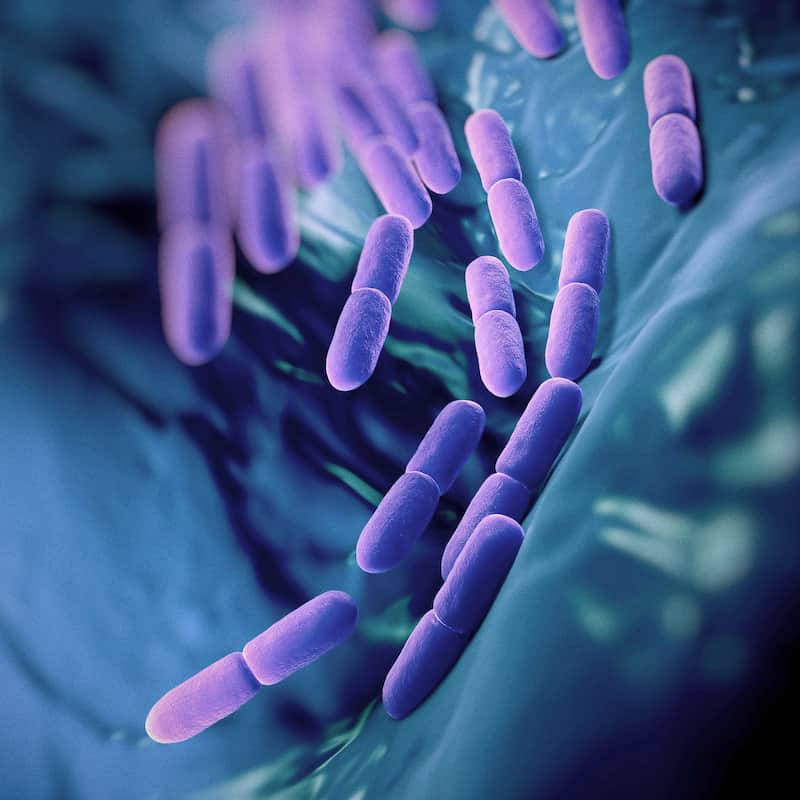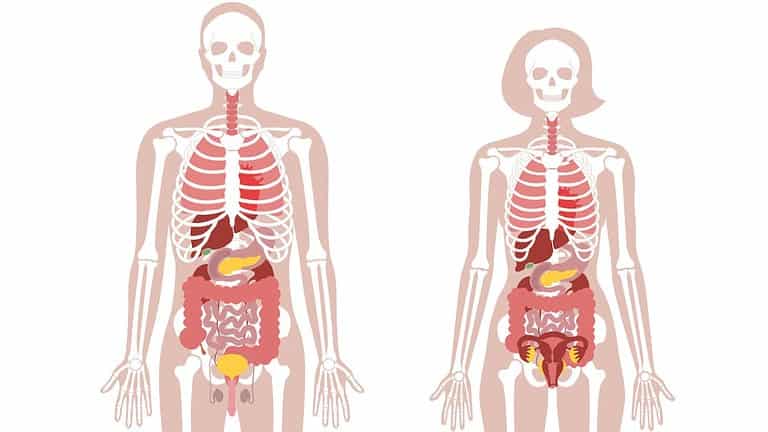Exploring How the Gut Microbiome Influences Human Health
How does the gut microbiome influence human health? Recent studies have sought to uncover the intricate connection between our gut and general health, making this an area of intense scientific inquiry. In this article, we’ll look into the intricate ecosystem of gut bacteria and its essential part in sustaining good health.
We’ll begin by defining what constitutes the gut microbiome and exploring its composition. Exploring the composition of the gut microbiome, we will then examine how it impacts a variety of human health factors, such as immunity, metabolism and nutrition, and mental well-being. We’ll also discuss the factors that affect the composition of gut bacteria.
Lastly, we will address the role of probiotics for improved gut health so you can make informed decisions on how best to optimize your family’s overall health. By understanding how does the gut microbiome influence human health comprehensively, you can take control of your well-being while fostering independence within your modern family.
Table of Contents
- The Gut Microbiome’s Role in Human Health
- Factors Affecting Gut Bacteria Composition
- Probiotics for Improved Gut Health
- Frequently Asked Questions
- Conclusion
The Gut Microbiome’s Role in Human Health
How does the gut microbiome influence human health? The gut microbiome is essential for sustaining human health, and its composition has been linked to a variety of diseases, such as obesity, hypertension, cardiovascular disease, diabetes, cancer, IBD, gout, depression, and arthritis. Research has highlighted links between the gut microbiota and these conditions; it also reveals that certain foods or dietary patterns may influence bacterial abundance within our intestines.
Obesity-related complications linked to gut microbiota composition
A growing body of evidence suggests that an imbalance in the gut microbiome can contribute to obesity-related complications. Studies have demonstrated that those with greater levels of Firmicutes bacteria are more prone to obesity than those with lesser amounts. Additionally, people who consume diets high in fat tend to have increased numbers of obesogenic microbes, which promote weight gain by enhancing energy extraction from food and increasing inflammation.
Impact on immune system composition
The interaction between the gut microbiome and our immune system is intricate yet indispensable for good health. The majority of our immune cells reside within the gastrointestinal tract, where they interact closely with trillions of bacteria present there.
A healthy balance among these microbial communities helps regulate inflammation while promoting tolerance towards harmless antigens like food particles or commensal microorganisms. However, imbalances in this delicate ecosystem can lead to chronic inflammatory conditions such as irritable bowel syndrome (IBS) or autoimmune disorders like rheumatoid arthritis.
Factors Affecting Gut Bacteria Composition
The mix of microorganisms in one’s gut can be impacted by variables, for example, diet, utilization of drugs, and presentation to anti-infection agents prenatally. Adults with low bacterial gene richness exhibit insulin resistance, while prenatal exposure to antibiotics alters an individual’s gut microbiota composition later in life. Medications, too, have an impact on altering microbial communities present inside us, thereby affecting how we respond to them therapeutically over time.
Factors Affecting Gut Bacteria Composition
The composition of one’s gut bacteria can be affected by factors such as diet, medication use, and exposure to antibiotics during prenatal stages. Understanding these influences on our gut microbiome is essential for maintaining optimal health and preventing various diseases.
Diet Influences the Abundance of Different Types of Bacteria Residing Within Our Intestines
A well-balanced diet is essential for encouraging diverse and healthy gut microbiota, as it helps nourish beneficial bacteria while keeping harmful microbes at bay. Consuming a variety of fiber-rich foods, such as fruits, vegetables, whole grains, legumes, nuts, and seeds, can help to foster beneficial bacteria for digestion while maintaining an unfavorable environment for harmful microbes.
- Fiber-rich foods: Fruits, vegetables, whole grains, legumes.
- Nuts & seeds: Almonds, walnuts.
- Avoid processed foods & refined sugars.
Prenatal Antibiotic Exposure Leads to Altered Metabolism
Studies have demonstrated that prenatal antibiotic exposure can lead to increased susceptibility to conditions such as obesity, asthma, and allergies. Antibiotics can disrupt the balance of gut bacteria in mother and child, leading to a possible long-term imbalance that could persist beyond birth. Therefore, it’s essential for pregnant women to use antibiotics judiciously and only when prescribed by their healthcare provider.
Additionally, certain medications may also impact our gut microbiota composition. For example, proton pump inhibitors (PPIs) used for treating acid reflux have been found to alter microbial communities within us, which could affect how we respond toward them therapeutically over time.
Probiotics for Improved Gut Health
One of the most effective methods for maintaining a healthy gut microbiome is through the consumption of probiotics. These live microorganisms offer numerous benefits when consumed as a food product or dietary supplement, contributing to improved gut health and potentially preventing various diseases. This is the best answer to the question, “How does the gut microbiome influence human health?” Source
Source
Prevention of Diarrhea Through Probiotic Consumption
Research has shown that probiotics can help prevent diarrhea caused by infections, antibiotic use, or even traveler’s diarrhea. The beneficial bacteria found in probiotics work by competing with harmful pathogens in the gastrointestinal tract, thus promoting a balanced gut microbiota. Some common strains known to be effective against diarrhea include Lactobacillus rhamnosus GG, Saccharomyces boulardii, and Bifidobacterium lactis.
- Lactobacillus rhamnosus GG: This strain has been proven to reduce the duration and severity of infectious diarrhea in children.
- Saccharomyces boulardii: A yeast-based probiotic that helps prevent antibiotic-associated diarrhea (AAD) by restoring balance within the gut microbiome after exposure to antibiotics.
- Bifidobacterium lactis: Known for its ability to alleviate symptoms associated with irritable bowel syndrome (IBS), this strain also plays a role in reducing incidences of traveler’s diarrhea.
Benefits for Children with Cystic Fibrosis
In addition to preventing diarrhea, probiotics have also been shown to offer potential therapeutic benefits for children with cystic fibrosis, a genetic disorder that affects the respiratory and digestive systems. A study conducted in 2018 revealed that regular consumption of Lactobacillus rhamnosus GG helped reduce pulmonary exacerbations and acute upper respiratory tract infections in these children.
Frequently Asked Questions
How does the composition of the gut microbiome affect overall health?
How does the gut microbiome influence human health? The gut microbiome’s constitution can have a substantial influence on general well-being. Microorganisms such as bacteria, fungi, and other organisms that colonize the digestive system aid in food digestion and the manufacturing of essential vitamins, impacting immune responses, metabolism, mental health balance, and more. They also influence immune responses, metabolism, mental health, hormone balance, and more.
Imbalances in the microbiome can lead to inflammation linked to many chronic diseases, such as obesity, diabetes, and cardiovascular disease. A nutritious diet with an abundance of prebiotics and probiotic enhancements can help keep up a harmonious gut microbiome for ideal prosperity.
How can we ensure our gut microbiomes remain healthy and balanced over time?
To promote a healthy gut microbiome, it’s beneficial to consume foods high in fiber, such as fruits, vegetables, nuts, and seeds. Probiotics and regular exercise also help keep your microbiome in check by promoting regular bowel movements and improving circulation throughout the body. Lastly, reducing stress levels is key since an imbalance of hormones can disrupt microbial diversity in the intestines.
Conclusion
How does the gut microbiome influence human health? It affects our physical and mental well-being more than we give it credit for. By following a balanced diet, taking probiotics, avoiding antibiotics when possible, and reducing stress levels, we can support a healthy gut microbiome which will have positive effects on overall well-being.
Take control of your health and well-being by exploring the ways in which gut microbiome can influence human health. Leverage our comprehensive resources to learn more about smart living now and how you can take actionable steps toward improving your lifestyle today.








